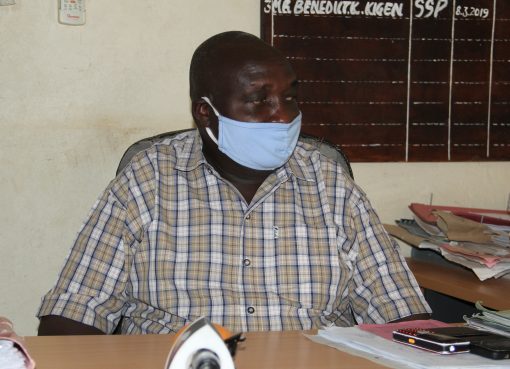The Sustainable Development Goal number four on quality education will be realized concurrently through goal three on good health and well-being.
This follows the expected launching of Kenya National School-Based Deworming (NSBD) next week across the country, targeting six million learners aged between 2-14 years in both public and private schools and out of school children within this age bracket.
This inter-ministerial initiative being implemented by the Ministries of Health and Education will commemorate 11 years of success in the deworming exercise that has treated 53 million learners since inception in 2012.
The Principal Secretary, State Department for Public Health and Professional Standards Mary Muthoni and her Basic Education Counterpart Dr. Belio Kipsang said school-age children typically hold the highest burden and intensity of infections and are particularly susceptible to developmental and behavioral deficits caused by worms.
The duo was speaking during a joint breakfast meeting Friday ahead of the national launch in Kirinyaga County.
Muthoni said worms interfere with nutrient uptake, leading to anemia, malnourishment, impaired cognition and physical development, lower school attendance and performance, and reduce economic productivity in adulthood.
She said studies have shown long-run educational and labour market benefits as a result of investment in deworming.
The PS said results indicated that overall prevalence for any infections significantly reduced by almost 62% during the 11-year period with 2020, having been the only year that the exercise did not meet target due to the global Covid-19 pandemic.
For schistosomiasis, the survey found that S. haematobium prevalence significantly reduced by almost 99% during the same period.
The survey, the PS added revealed that men who were dewormed as children stayed
enrolled in school for a longer time, worked more hours each week as adults, and were more likely to work in higher-wage manufacturing jobs.
It also showed women who were treated as children were more likely to pass
primary school exit exams and transited to secondary school.
On the other hand, Dr. Kipsang who was represented by the Head Primary Education Department Stephen Barongo observed that school-based mass deworming reduced absenteeism, helps in cognitive development and allows more of a child’s energy to be focused on growth and development besides positive gain in weight and school participation.
NSBD is a Kenya Vision 2030 flagship program recognized by Kenya’s National School Health Policy and Guidelines, as well as the Neglected Tropical Diseases Master Plan 2016-2020, and was among the first programs to directly engage with county structures following devolution in the 2010 constitution.
The Ministries of Education and Health provide strategic leadership at the Steering
Committee level, adopting guidance from the WHO and develop policies to ensure progress towards overall goals.
The 2024 deworming medicines have been donated through the support of Evidence Action procuring 6,134,000 Albendazole tablets and 198,000 Praziquantel tablets.
The 2024 annual round of deworming target 16 counties and 122 sub counties across the nation.
The treatments will be administered to school going children with Albendazole tablets being given to children in 15 counties, while children in Kirinyaga county will receive Albendazole and Praziquantel tablets.
The deworming activity will take place on 4th July 2024 across the 16 Counties with a national Launch event at Kanjuu Primary School in Kirinyaga County to be presided over by the Public Health and Professional Standards and the Basic Education Principal Secretaries.
Globally, 1.5 billion people, nearly 1 in 4 of the world’s population are infected with STH. Further, approximately 200 million are infected with Schistosomiasis. Worm transmission is perpetuated in areas with poor sanitation and hygiene.
Evidence Action has been a partner of Kenya’s Ministry of Health and Ministry of Education, alongside other partners such as the CIFF, The End Fund, GiveWell and the World Health Organization for the purposes of establishing, scaling, and maintaining the Kenya National School-Based Deworming Programme.
By Joseph Kamolo





